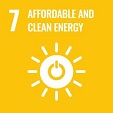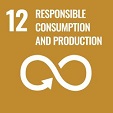PhD in Energy Science and Technology
Current position: Post-doctoral Researcher at Hanyang University, Republic of Korea
Research focus: thermo- and electrocatalytic conversion of lignocellulosic biomass derived platform compounds to fuels and value-added chemicals
Fossil resources should be replaced with renewable resources. Lignocellulosic biomass is a promising resource since it is naturally abundant, does not affect land use for food production, and can contribute to a carbon-neutral biorefinery. Lignocellulosic biomass is produced, for example, as a by-product in agriculture (straw, sugarcane bagasse, etc.) and in forestry (waste from sawmills or paper mills).
Over the past five years, Reibelle has worked on several research projects involving the thermocatalytic conversion of biomass into transport fuels and key platform chemicals. Because conventional thermocatalytic processes often require H2 under high pressure and harsh reaction conditions, she is exploring “greener” catalytic processes that do not require the use of precious metals, toxic solvents, or intensive energy inputs.
Reibelle’s work, for example, includes the synthesis of high-carbon precursors for fuels from furan compounds such as furfural. This project focused specifically on carbon-carbon coupling reactions, which are considered the most readily available and efficient strategies for producing high-carbon fuel precursors.
The central concept of another project is the development of a catalytic process for the conversion of methyltetrahydrofuran (MTHF) from biomass. MTHF is a bio-renewable, aprotic ether solvent that, due to its interesting properties, has the potential to serve as a fuel additive and be blended with conventional gasoline without requiring modifications to the current engines.
A third project focuses on the development of chemical conversion technologies of furan derivatives to manufacture lubricant-grade products. This project generates a general strategy for the synthesis of medium-chain alcohols from lignocellulosic feedstock.
To achieve her goals, Reibelle’s research covers a broad spectrum of interdisciplinary research areas such as materials science, organic chemistry, chemical and reaction engineering, energy and environmental engineering, and chemical engineering.
Reibelle’s work is aligned with several UN Sustainable Development Goals (SDGs): Goal 7 (Affordable and Clean Energy) to increase the share of renewable energy in the global energy mix, Goal 12 (Responsible Consumption and Production) to achieve holistic use of chemicals derived from the non-edible biomass, substantially reducing waste, and Goal 13 (Climate Action) to use carbon-neutral renewable sources.
This outstanding candidate, who has already earned her PhD at the age of 26, caught the jury’s attention with her promising work on the thermo- and electrocatalytic conversion of lignocellulosic biomass platform compounds into fuels and value-added chemicals. The jury also appreciated her engagement beyond the academic context as a Korean cultural ambassador.
The research of Reibelle mainly contributes to the Sustainable Development Goals 7, 12, 13:
Take a look at this video that briefly introduces Reibelle and her research:









